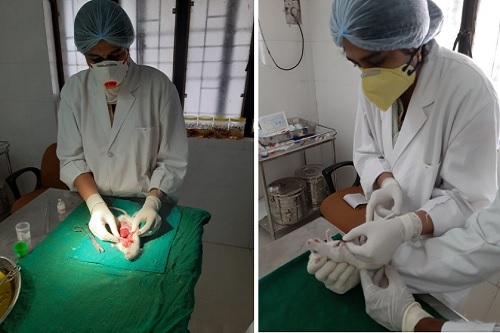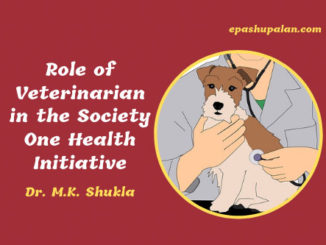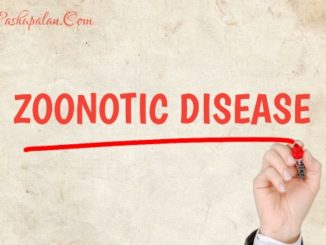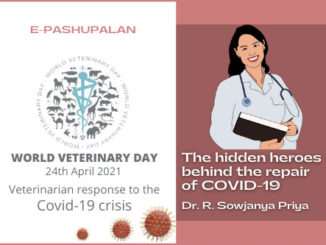Introduction
A new corona virus was identified in the month of December2019 at Wuhan, Hubei Province, China which resulted in a Pandemic outbreak throughout the world named Novel corona virus 2019 known as COVID-19 which is identified by symptoms like Fever, dry cough and respiratory distress. World health Organization declared it as public health emergency of International concern on 30/01/2020, as pandemic on March11. COVID-19 lead to serious mortality rates all over the world by mid-March. Though it started in China, it escalated to developed countries like United States of America, United Kingdom and Australia. There are many developed countries in the world, the top being Australia, Switzerland, Netherlands, United States of America, Germany, New Zealand, Canada, Denmark, United Kingdom, Italy based on indices like economy, technology and infrastructure. The Pandemic has caused a serious health misfortune among the developed countries, even though they had affluent health care facilities. Despite many precautionary measures taken by these countries, the number of cases, transmission and death tolls have been increasing day by day.
The COVID-19 pandemic has put considerable pressure on public health services across the globe over the past one year. Even if it is suggested that the virus causing COVID-19 (SARS-CoV-2) emerged from an animal source, and some animals have become infected by people, the pandemic is being driven by human to human contact. No evidence, to date, has shown that animals are playing a significant role in spreading the disease.
This pandemic impacts populations in numerous ways and reminds us that multi-sectoral collaboration, in line with the “One Health” approach, and the sharing of expertise are more important than ever. Scientists are working around the clock to better understand the virus and its evolution, to develop interventions, and to enhance capacity to respond to this human health crisis. This pandemic awakens the need for a long lasting and sustainable One Health collaboration which can take many forms.
Beyond collaborative research, the animal health sector, and in particular, Veterinary Services contribute in various ways towards building a common response to the pandemic. In many countries, veterinarians have shown their commitment to support the work of human health authorities. Veterinary laboratories have used their experience and expertise in testing capacity of infectious diseases to engage in activities such as surveillance screening, by testing human samples, thereby supporting the diagnostic capacity of human health services.
Some Veterinary clinics have been donating essential materials such as personal protective equipment and ventilators. Veterinary professionals have also been volunteering in hospitals and laboratories when human resources were not sufficient. In some countries, veterinary epidemiologists have been supporting their counterparts in public health response to track the disease in humans and to support the development of effective public health interventions. In conjunction with crisis management effort, it should not be forgotten, that on a daily basis, the activities of veterinary services contribute to addressing critical needs, which are heavily challenged in the current circumstances : food security and safety, as well as livelihoods are intrinsically linked to sound animal production systems. It is crucial that Veterinary services continue to implement their multiple activities, which contribute to ensure a continuum in safe food provision for populations and to sustain their subsistence. The down stream effects of COVID-19 on economies, animal health, and food security remain as important as ever.
Role of OIE (World Organisation for Animal Health, formerly the Office International des epizooties)
Though the mission of OIE is to set animal health and welfare standards, to inform, and to build capacity, the OIE is fully mobilized to accompany veterinary services across the world to address the situation. The OIE liaises closely with its tripartite partners, WHO and FAO. Several OIE expert groups are developing scientific advice on research priorities, sharing results of on-going research in animals, and developing scientific opinion on the implications of COVID-19 for animal health and veterinary public health. The OIE has also developed high level guidance for veterinary laboratories working with public health services to support testing of human samples and is currently developing guidance on the circumstances under which exceptional testing of animals might be justified.
Call for change
The unprecedented nature of this pandemic and the mysteries around this virus require new and innovative approaches to tackle it, these will only be developed through cross sectoral collaboration and collective action. The COVID-19 pandemic is creating unprecedented pressure on Public health services world-wide. A multidisciplinary collaborative (‘whole-of-society’) approach is required to minimize the impact of this rapidly spreading virus. Veterinary Services can support Public Health service to meet the extraordinary surge in demand for diagnostic testing of human samples for SARS-Cov2 by making available appropriately equipped and competent veterinary laboratories. In some countries human laboratory diagnostic services are at maximum capacity and, as an alternative, veterinary laboratories are being asked to provided support. Veterinary laboratories are well positioned because they have experience in quality assurance, biosafety and biosecurity, and high throughput testing for the surveillance and control of infectious diseases in animals, some of which are zoonotic.
Additionally, veterinary services can provide expertise in the fields of epidemiology, risk assessment, training and risk communication. Testing of human specimens in veterinary laboratories should be a part of a coordinated government-led Public Health response and laboratories performing COVID-19 diagnostics should ensure they comply with regulations regarding the laboratory testing of human specimens.
Veterinarians and their teams provide important animal and public disease surveillance to prevent disease outbreaks, including of zoonotic diseases. They ensure food security and that people have safe food to eat by ensuring only healthy animals and their products can enter the food supply. Veterinarians provide ongoing medical care and oversight as well as surgical and emergency services to ill and injured animals. The Veterinary services also include the national and regional veterinary regulatory and inspection services, which oversee the integrity of public health. They also oversee veterinary services conducted in animal hospitals, mobile clinics, ambulatory services, zoos, etc. In addition, they oversee the care of laboratory animals, which are critical to research medicines and vaccines, including vaccine research against Covid-19.
During this crisis, some veterinary practices had to defer some non-urgent procedures to preserve medical and pharmaceutical supplies. Veterinarians adapted practices to ensure an appropriate level of biosecurity, wear protective personal equipment, and social distancing that safeguards the health of our animal patients and their owners. Many countries had discussions on what is urgent and non-argent work in relation to companion animals, but seem the length of this crisis, focusing on urgent /emergency work along is not feasible and will create serious health and welfare problems and probably an overflow of work after the crisis. The UK created a flow chart on this.
Some countries (e.g. UK, US, France) have exceptionally allowed remote consultation and prescribing to strike the right balance between providing essential veterinary care for animals and safeguarding the health of the profession and the public.
One health: less talk and more actions
The one Health concept highlights connections between human, animal and environmental health and promotes collaboration between diverse sectors. Veterinarians often drive one Health initiatives and attempt to gain a seat at the table of collaborative efforts. Despite their best efforts and attempts at reinforcing the importance of collaboration between sectors, veterinarians’ voices often remain unheard. The American Veterinary Medical Association (AVMA) states that ‘veterinarians play an integral role in One Health because animals both impact and are impacted by people and the environment’. However, global health leaders like the World Health Organization (WHO) have been slow to integrate animal and environmental health into strategies to combat human diseases.
Recent efforts to integrate One Health into the Global Health Security Agenda represent progress and present opportunities for veterinarians to contribute their expertise. Veterinarians must make noticeable progress in shifting their efforts from talking about one Health to implementing it. Merely discussing one Health in terms of the three pillars might paradoxically serve to reinforce silos between these three sectors. The COVID-19 pandemic is an opportunity for veterinarians to demonstrate their utility in One Health efforts. Those aiming to expand their contributions may need to explain and more importantly demonstrate the unique value of a Veterinary degree to academic admissions boards, collaborators, and hiring entities that may lack such understanding. The small box in which veterinarians currently reside is in part a by product of the response to market forces. This can be changed through strong leadership.
Leadership, mentoring, and rebranding the veterinary profession
Veterinary leaders have succeeded in creating a highly respected companion animal medicine industry that supports the very important human-animal bond. Isolation during the COVID-19 pandemic has reminded many of the psychological and physical benefits associated with pet ownership. The profession’s leaders should embrace opportunities the COVID-19 pandemic has presented to expand and diversify veterinary medicine’s benefits to society. The COVID-19 pandemic is both a monumental challenge and an undeniable opportunity for improvement through leadership.
In the face of the ongoing COVID-19 pandemic and the real threat of future pandemics, the veterinary profession must retain adequate focus on companion animal clinical training while strengthening focus on food animal medicine, public health, and research, Preventing and solving today’s pressing challenges can only be achieved through sound leadership and effective collaboration between sectors. Companion animal clinical services remain important and are in high demand during COVID-19, but the pandemic has revealed additional focus areas in which veterinarians should serve to maximize their benefit to society. Some have called for changes to veterinary curricula to better prepare students for work in food animal medicine, public health, and research.
Veterinary training must prepare students to function as dynamic collaborators in diverse and multidisciplinary settings. This is essential to maximizing the profession’s impact across a breadth of professional sectors and towards the benefit of all of society.
The COVID-19 itself presents an opportunity to highlight the utility of veterinary degree, to change public perception, and to attract a more diverse applicant pool to veterinary colleges. Veterinary colleges can expand their reach by highlighting the utility of a veterinary degree outside of companion animal practice. Early media coverage of veterinary involvement in the COVID-19 response seemed limited to ventilator donation and expert opinion on pets’ role in SARS-CoV-2 transmission. While these are important efforts deserving of recognition, veterinarians’ recent contributions to food security are also important but receive less attention.
Therefore, public perception of veterinarians might be dominated by the image of a clinician holding a pet. Public perception of the profession could dissuade some talented and non-traditional students from pursuing veterinary education and should be further studied. Veterinary colleges should actively recruit students with background in fields like economics, international relations, political science, ecology, civil engineering, anthropology, sociology, entomology, and human healthcare. The Veterinary degree must be viewed as a valuable degree facilitating entry into dynamic professions with global health relevance.
How can Veterinary College Change?
Central and /or State Governments could inject funding to support increased class sizes, expanded recruiting efforts, hiring of faculty members representing more diverse backgrounds and disciplines, and curriculum modification to meet broader societal demands and needs. Doing so might help change public perception about veterinarians and stimulate interest among public health, food animal medicine, and research-minded students. Veterinary colleges could explore options for course collaborations with Medical colleges to emphasize One Health approaches. Such collaboration might be more feasible in light of increased familiarity with video communication technology since the start of COVID-19. These efforts might help veterinarians practice One Health efforts grounded in steady progress and mutual understanding among collaborators across disciplines. Increasing class size must be met with accessible government jobs previously less available to veterinarians. Veterinarians and established leadership must be more vocal and willing to lobby politicians and stakeholders who stand to benefit from a more service- focused profession.
Veterinarians must force their ways into new and diverse professional networks by developing relationships with leaders and stakeholders outside of their comfortable circles. Leaders must advocate for the impressive utility of the veterinary degree and support motivated and creative minds interested in applying their education toward preventing and solving global health problems like food insecurity and infectious diseases.
Testing of Novel drug
In India, along with Research & Development(R & D) sector, veterinarians are playing important roles in Medical Institutions also, in testing of drugs invented against the COVID-19 pandemic. For example recently, at UP University of Medical Sciences, Saifai, Etawah, Raj Nirwan Bati (RNB), world’s first “ALLOVEDIC” medicine has been formulated which is scientifically proven to be effective in the treatment of COVID-19 and can prove to be a milestone in containing this pandemic in India as well as rest of the world. This novel herbomineral formulation has been tested diligently as per contemporary allopathic medical research practices and guidelines. Since it has been tested diligently on all scientific principles of modern medicine (along with scientific proof of each constituent), it has been termed as “ALLOVEDIC” preparation, despite the fact that it contains established constituents of Ayurveda. The quality standards of the ingredients and quality assurance are in accordance with the Ayurvedic pharmacopoeia of India (API) and “General Guidelines for Drug Development of Ayurvedic Formulations” issued by Central Council for Research in Ayurvedic Sciences, Ministry of Ayush, Government of India, New Delhi, in 2018. Presently this drug is being tested in Wistar rats to check its immunomodulatory property, which is required for fighting against the novel coronavirus, as well as its toxicity on different organs, and in testing of this novel drug, the veterinarian (the author of this article) is playing a key role as a Principal Investigator, in getting the approval of IAEC to the completion of this research study.

Conclusions
Thus, the emergence of SARS-CoV-2 shows the close relationship between human health, animal health, the condition of the ecosystem and people’s habits, which is the core concept of “One Health”. The veterinarian is an integral part of the global community of health professionals and plays a key role in the prevention and control of diseases, such as COVID-19. This professional has knowledge about other coronaviruses that affect animals and, therefore, can help in studies on the origin and transmission of SARS-CoV-2, as well as assist in the development of vaccines and antiviral drugs.
The COVID-19 pandemic is an opportunity for the Veterinary services to shine. The profession must nurture creativity and leadership to expand its benefit to society. Veterinarians have an opportunity to assert themselves as key players in transforming one Health theory into collaborative action through focusing on food security, navigating the COVID-19 pandemic, and preventing future pandemics. To maximize it’s benefit to society, the profession must also continue its recruitment efforts to support a diverse professional workforce. If veterinary leadership does not seize this moment to demonstrate its value, an entire generation of talented and service-minded professionals could turn its back to the profession.
Acknowledgement: The author is grateful to the Vice-Chancellor, UP University of Medical Sciences, Prof.(Dr.) Raj Kumar for providing necessary facility to complete this article.
References
- Fathke RL, Rao S, Salman M. 2020. The COVID-19 pandemic: A time for veterinary leadership in one health. One health..Science Direct.11.100193.1-3.
- Ed.Kumar A, Singh A, Vishwakarma S, Gupta V. 2020. Raj Nirwan Bati-World’s 1st Allovedic medicine effective in COVID-19 treatment. In. COVIDOLOGY.UPUMS,SAIFAI. p.121-124.
- Kumar R, Patturi G, Kumar S, Agarwal A, Kumar A. 2020.COVID-19: Facts and Figures in developed countries-an overview. Paripex- Ind J Res.9(5).DOI:10.36106/paripex.
- News on COVID-19 and veterinary profession dated 16th march, 2020 by FVE (Federation of Veterinarians of Europe). https://fve.org/covid-19-faqs/.
- Pedroso ACB, Dutra HT, Santos DR, Ubeda EZ, Queiroz PJB, Brandsetter LRG. 2020. The role of the Veterinarians in coping with COVID-19 pandemic: a literature review. Res Soc Dev.9 (11). DOI:https://doi.org/10.33448/rsd-v9i11.9684.






Be the first to comment